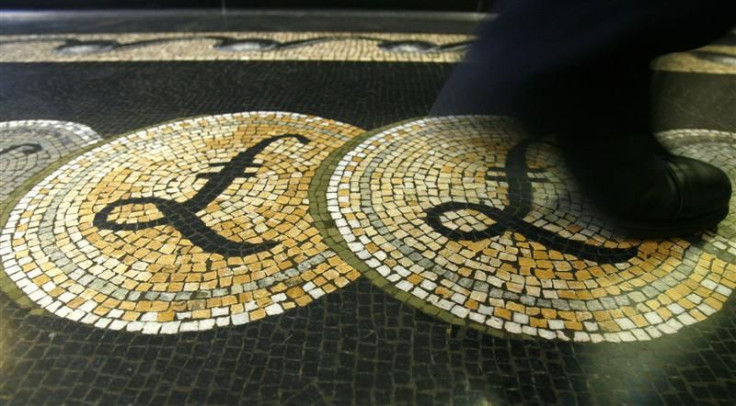Sterling Hits 2016 High, Stocks Climb As UK Votes On Brexit

Sterling hit a 2016 high and world stocks climbed for a fifth day running on Thursday, as British voters headed to the polls for a crucial vote on their European Union membership.
Financial markets have been wracked for months by worries about what a potential Brexit would mean for Europe's stability but the latest opinion polls showing the "Remain" camp holding a small lead have provided some comfort.
The pound, which has been the lightning rod of Brexit opinion throughout the six-month campaign, was up 0.3 percent at $1.4765 in early European trading having risen to its 2016 high of $1.4847 overnight.
In the equity markets, London's FTSE was up 0.6 percent and neck and neck with German's DAX at the top of European leader board, both of which helped push MSCI's 46-country All World index higher.
"You look at the markets and they expecting a remain win, cable (sterling/dollar) at above $1.48 at one point this morning tells you it all," said Societe Generale FX strategist Alvin Tan.
With the polls still incredibly tight and having proved unreliable in last year's UK election, caution remained however.
Share trading across Europe was just a third of its normal level and two-thirds lower than average on the UK's FTSE Reuters data showed.
Away from the Brexit debate, Norway's crown jumped to a 10-day high as its central bank kept interest rates steady.
Traders were also digesting disappointing June euro zone PMI data as a surprising bounce in manufacturing activity couldn't offset a marked slowdown in service industry growth.
That came ahead of the results of the first of the European Central Bank's revamped long-term loan offers. It is now effectively paying banks to lend the cash they take to the euro zone's firms and consumers.
Wall Street was expected to reopen around 0.5 percent higher later. Overnight MSCI's broadest index of Asia-Pacific shares outside Japan ended up 0.3 percent with Tokyo's Nikkei nearly 1 percent higher.
"Most people at this point expect a rise in the market" on expectations the vote will favor Britain staying in the EU, said Isao Kubo, an equity strategist at Nissay Asset Management.
"But you never know, and it will be clear by tomorrow so you don't want to take new positions now."
VOLATILITY
The Brexit vote nerves kept safe-haven government bonds firm with 10-year German and Japanese bonds yielding 0.05 percent and 0.13 percent respectively compared to 1.70 percent for U.S. Treasuries.
Spot gold hit a two-week low of $1,260.36 an ounce though and the main market 'fear-gauge' the VIX volatility index saw its biggest drop in a month.
Investors were heading to the sidelines ahead of the referendum as a closely fought vote meant any large positions taken before the outcome was vulnerable to being stopped out. A Bank of America Merrill Lynch fund manager poll last week found investors' cash levels at their highest since November 2001.
Some investors such as George Soros expect the value of the British pound to decline by as much as 15 percent from current levels in the event of a British exit from the EU.
The demand for the perceived safe-haven yen remained broadly intact with the dollar adding just 0.2 percent to 104.63 yen, while the euro gained 0.6 percent to 118.67 yen.
The euro rose 0.4 percent to $1.1334, while the dollar index, which tracks the greenback against a basket of six rival currencies, slipped 0.25 percent to 93.479.
"It will be hard for the market to move until the poll results are released. The pound obviously will take center stage. But other European currencies and particularly dollar/yen also bear watching as the pair will reflect swings in risk sentiment," said Shin Kadota, chief Japan FX strategist at Barclays in Tokyo.
Before the vote, exchanges and market regulators moved in to tighten risk management systems. Singapore's stock exchange said it has raised the amount of cash firms must pledge to cover trading positions while central banks stood by to pump in emergency cash.
© Copyright Thomson Reuters 2024. All rights reserved.




















